Introduction
The social function football used to provide was what sociologists call “socialization”: the modification of the child’s behavior as they mature, and their assimilation into a grown-up world through customs, rituals and more (Tempany, 2014). According to Tempany, football has never been safer, better televises or more entertaining. Moreover, it has never been this individual and less about the culture of the people who shaped the football clubs (Tempany, 2014). Sports industry leaders cite the shift in consumer behavior of younger generations as the ‘top threat faced by the industry’ (PwC, 2018).
Dutch football clubs are in search of new possibilities to involve and renew the connection with the younger generations of supporters. Vitesse is one of the football clubs that undergoes difficulties to connect with younger supporters (age twelve to sixteen) and wants to play a more prominent role in the life of the younger supporters. This project explores how Vitesse can (re)connect with the younger supporters.
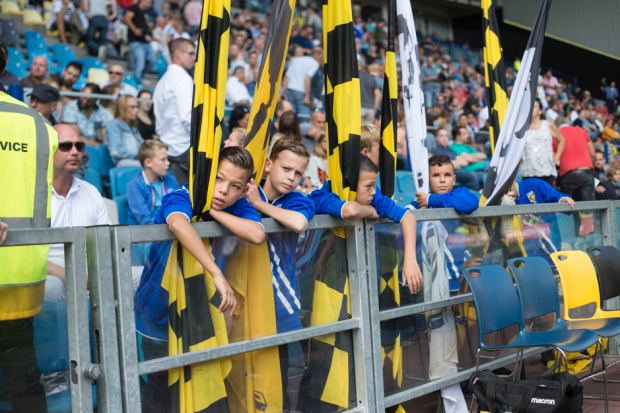
Figure 1: younger supporters of Vitesse
Approach
Relatedness and belonging are two of the thirteen fundamental needs defined by Desmet and Fokkinga (2018). Designing for fundamental needs is one of the eight approaches to emotional design.
User Study
This project creates an understanding of how the younger supporters of Vitesse fulfil their fundamental needs within the context of football. The second objective is to find out whether the fulfillment of their fundamental needs differs from older generations. The user study of the project aims to identify elements that affect the fundamental needs defined by Desmet and Fokkinga (2018) to find which needs affect the emotional bond with Vitesse subsequently.
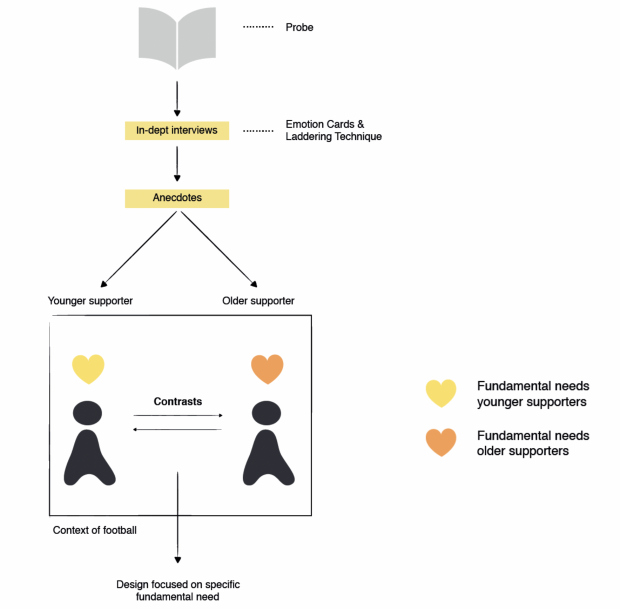
Figure 2: outset of the user study
Direction
The main insight derived from the user study is; the younger supporter of Vitesse supports Vitesse in their own since most of their peers support other football clubs. While the need to support collectively is present. They get in contact with their peers mainly through Fifa and other digital channels; fulfilling their need for belonging and relatedness and creating a more significant distance between them and Vitesse. This led to the aim to design an activity between fellow supporters and peers that allows them to grow social relationships, where the activity is guided and organized by Vitesse and its football players.
Buiten Spel
‘Buiten Spel’ is a game platform based on football battles that allow the younger supporters of Vitesse to play football with each other throughout Arnhem. The game exists of four main elements that form a connection between the users, Arnhem and Vitesse to create a sense of belonging and relatedness. The concept lifts playing football outside to a higher level providing battles that are guided and demonstrated by the team of Vitesse and linked to specific places in Arnhem, aiming to achieve a positive social impact in Arnhem.
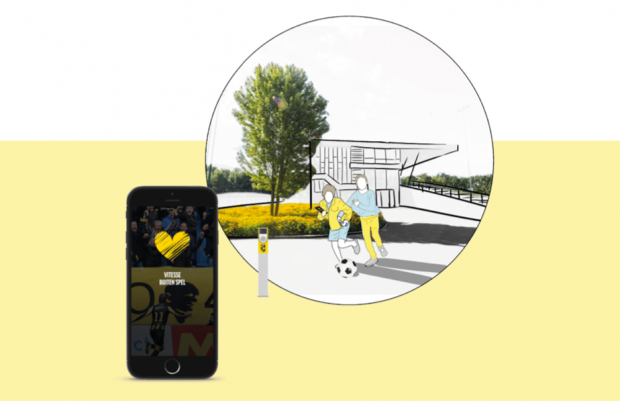
Figure 3: Vitesse Buiten Spel
The elements
The elements are; (1) Who – Peers, (2) What – Play & Discover, (3) Where – Arnhem, (4) How – Game.
Who – Peers
Goal: To connect the supporter to their peers, other supporters and Vitesse.
Facilitated by: The four different battle formats; one, one vs. one, team vs. team, one vs. Vitesse.
What – Play
Goal: To let the supporter discover new people, Arnhem, Vitesse and the team.
Facilitated by: Playing and discovering the football battles of ‘Buiten Spel’.
Where – Arnhem
Goal: To connect the environment of the supporter with Vitesse and Arnhem.
Facilitated by: The possibility to start playing from your home to special locations in Arnhem.
How – Game
Goal: To lift playing football outside to a higher level.
Facilitated by: Developing in the game by earning points and digital and offline rewards, creating a new objective to play.
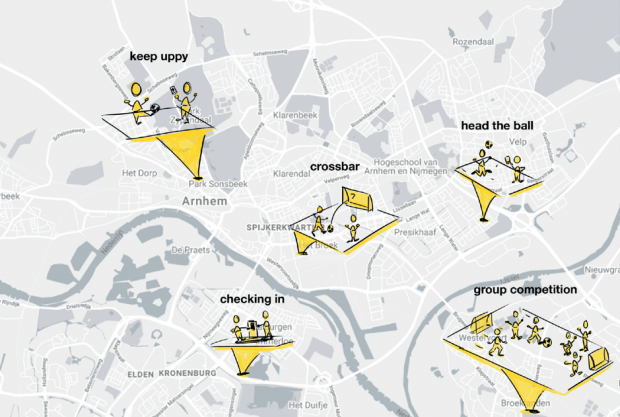
Figure 4: battles distributed in Arnhem
The app
An app is developed to connect the four elements creating a connection between the game platform and the real world.
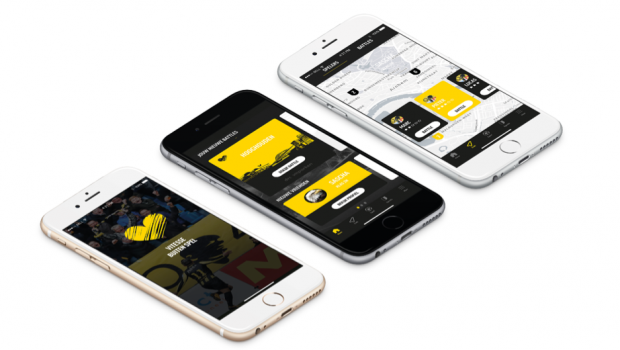
Figure 5: mock-up of the screens
Meet Jochem
Jochem is fourteen years old and lives in Arnhem. He likes Vitesse, but he does not have someone to go with him to the game. His friends support other football clubs and like to play Fifa. Therefore, Jochem plays Fifa to get in contact with his friends. Through Fifa he can experiment with various teams and discover different styles of football; creating a more significant distance between him and Vitesse. But then Jochem finds ‘Buiten Spel.’ He decides to download the app to see what ‘Buiten Spel’ is all about.
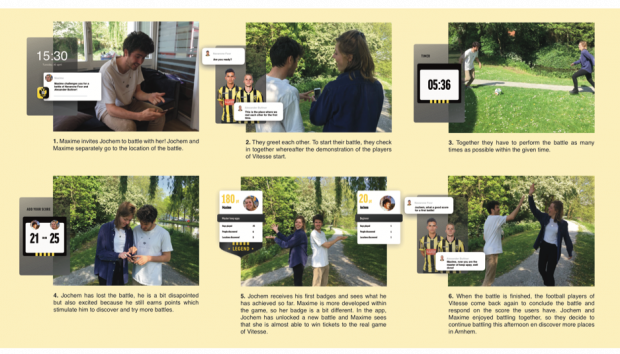
Figure 6: how it works – scenario
Evaluation
Although the fulfilment of relatedness and belonging is difficult to assess, the user evaluation with children between the ages of twelve to sixteen years old in Arnhem reveals that ‘Buiten Spel’ helps to connect them to fellow peers and supporters. Moreover, the evaluation shows that the concept allows them to grow social relationships, stimulating them to be more involved with Vitesse while taking playing outside to a higher level.



